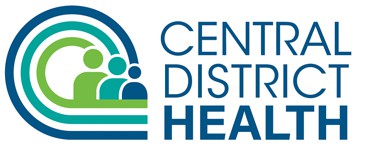Summary
Rates of syphilis and other sexually transmitted infections (STIs) continue to increase.
Central District Health (CDH) received reports of 61 syphilis infections in 2019 with
nearly 1 in 4 reported infections being in females. One congenital syphilis case was
reported in Idaho in 2019. To date in 2020, 3 of 8 syphilis infections reported to CDH
have been in females. Providers play a vital role in stopping the spread of syphilis and
preventing congenital syphilis. CDH urges providers to continue to assess risk, discuss
risk reduction strategies, and test and treat patients for STIs, including syphilis.
Testing and Treatment
Please consider syphilis if a patient presents with:
- Any ano/genital or oral lesion, especially indurated and minimally painful ulcers
- Any unexplained rash, especially with palmar or plantar involvement
- Unexplained lymphadenopathy
- Unexplained ocular disease (i.e., uveitis, panuveitis, diminished visual acuity, blindness, optic neuropathy, interstitial keratitis, anterior uveitis, retinal vasculitis)
Persons at increased risk should be screened for syphilis at least annually and include sexually active men who have sex with men (MSM) and persons living with HIV (PLWHIV). Additional risk factors among recent cases include methamphetamine use, partner with methamphetamine use, and/or multiple partners of unknown risk.
Treatment for syphilis is dependent upon the stage and clinical manifestations of the disease. CDC recommended treatment:
- Primary, secondary and early syphilis (acquisition within the preceding 12 months) = Benzathine penicillin G 2.4 million units in a single dose
- Syphilis of unknown duration or latent syphilis = Benzathine penicillin G 7.2 million units total, administered as 3 doses of 2.4 million units IM each at 1 week intervals.
Neurosyphilis can occur at any stage of infection. Patients with neurological, ophthalmological, or audiologic symptoms warrant a neurological exam and CSF evaluation. See the complete CDC STD Treatment Guidelines for additional information on testing and treatment for neurosyphilis.
Partners and Contacts
In order to stop the spread of infection, seize every treatment opportunity. CDC recommendations for contacts to syphilis:
- Contacts potentially exposed within the preceding 90 days should be treated presumptively for early syphilis, even if serologic test results are negative.
- Contacts potentially exposed >90 days prior to visit should be treated presumptively for early syphilis if serologic test results are not immediately available and the opportunity for follow-up is uncertain. If serologic tests are negative, no treatment is needed. If serologic tests are positive, treatment should be based on clinical and serologic evaluation and stage of syphilis.
Considerations for Pregnant Women
Syphilis of any stage can be transmitted to a baby during pregnancy, causing congenital syphilis. All women should be screened for syphilis at the first pregnancy-related visit. Additional serological testing should be considered at 28-32 weeks gestation and again at delivery regardless of risk. Testing at the additional intervals is recommended if a woman reports having multiple sex partners, has been diagnosed with a sexually transmitted infection (including syphilis) or has a sex partner diagnosed with syphilis. Any woman who has a fetal death after 20 weeks gestation should be tested for syphilis, even if screening was performed early in pregnancy.
Penicillin G is the only recommended treatment for preventing maternal transmission to the fetus and treating fetal infection. Partner(s) need to be tested and treated.
To report a communicable disease or for more information call the CDH Communicable Disease Control Program at 208-327-8625.
Additional Resources:
MMWR: Recommendations for Providing Quality Sexually Transmitted Diseases Clinical Services https://www.cdc.gov/mmwr/volumes/68/rr/rr6805a1.htm?s_cid=rr6805a1_w
2015 CDC STD Treatment Guidelines (includes screening recommendations) https://www.cdc.gov/std/tg2015/default.htm
California STD/HIV Prevention Center “A Clinician’s Guide to Sexual History Taking”:
https://www.cdph.ca.gov/Programs/CID/DCDC/CDPH%20Document%20Library/CA-
STD-Clinician-Guide-Sexual-History-Taking.pdf

